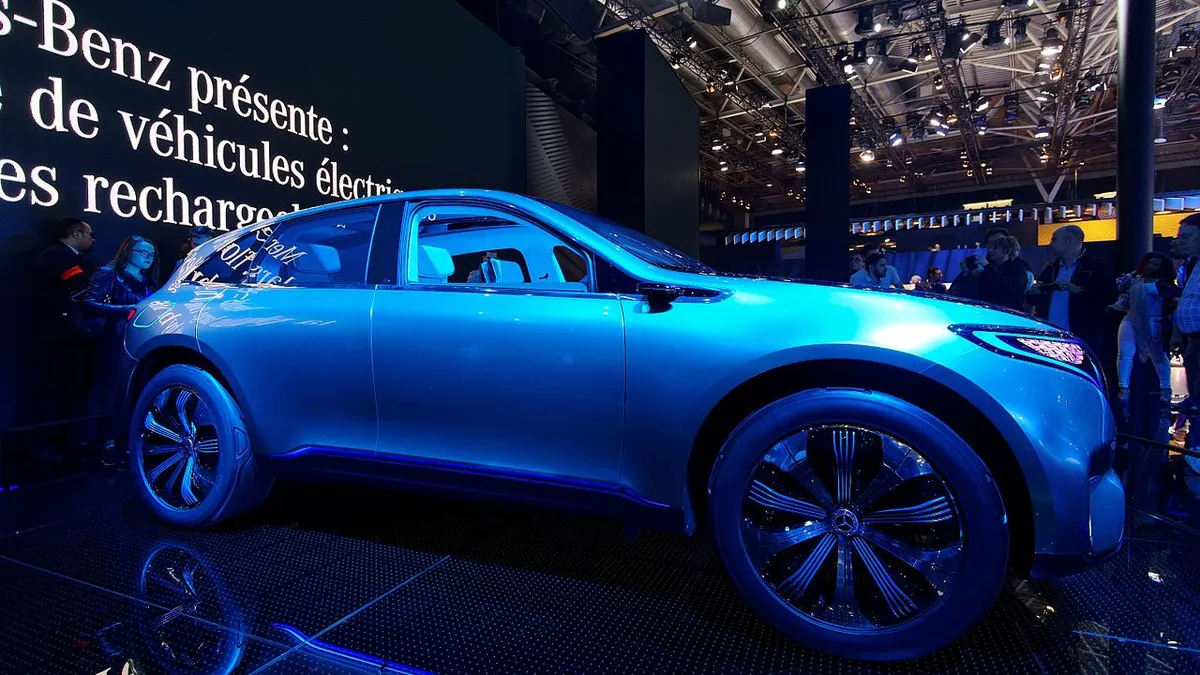Dive Brief:
-
Mercedes-Benz's parent company Daimler announced Thursday that the luxury automaker would make a $1 billion investment in a Tuscaloosa, AL, plant where it will begin U.S. production of electric cars.
-
The outlay will pay for the construction of a 1 million-square-foot battery factory as well as an expansion of the plant where the company expects to produce its EQ sports utility vehicle model, according to USA Today. Mercedes-Benz is planning to compete with Tesla for market share in electric vehicles — and perhaps even in the home battery sector, according to The Verge.
-
Mercedes-Benz officials said construction of the new battery factory will begin in 2018 and is expected to start operations early in the next decade. The company said its investment will create more than 600 new jobs in the region.
Dive Insight:
The world's stock of electric vehicles stood at more than 2 million at the end of 2016, with China accounting for 40% of all sales, a number more than twice that of the U.S., according to the International Energy Agency (IEA). Still, the electric vehicle market represents only 0.2% of the entire light-duty passenger vehicle market, although the agency projects electric vehicles could reach 30% of passenger cars, light commercial vehicles, trucks and busses by 2030.
As electric vehicles become more popular and the need for production facilities grows, so does the demand for batteries. Like Mercedes-Benz, Tesla requires a ready supply of batteries and has already started production in its partially-complete $5 billion battery gigafactory in Las Vegas. Tesla has said being able to produce its own batteries at the gigafactory will reduce the cost of its electric car batteries by 30%, Business Insider reported.
For some electric car makers, however, the path to success is not as certain. After a site search that had a handful of states competing for a commitment, Tesla competitor Faraday Future chose North Las Vegas, NV, in which to build a $1 billion factory. Questions about the company's financial strength arose early on, but the state ended up offering approximately $320 million in tax breaks and other incentives.
However, problems maintaining the escrow account that was part of the state deal and issues with contractor payments caused construction on the project to stop, even with site work underway.
Soon after, Faraday announced it would build a smaller facility instead. Then, in July, the company said it would look for an existing manufacturing plant so that it could start production on its FF91 model as soon as possible.












